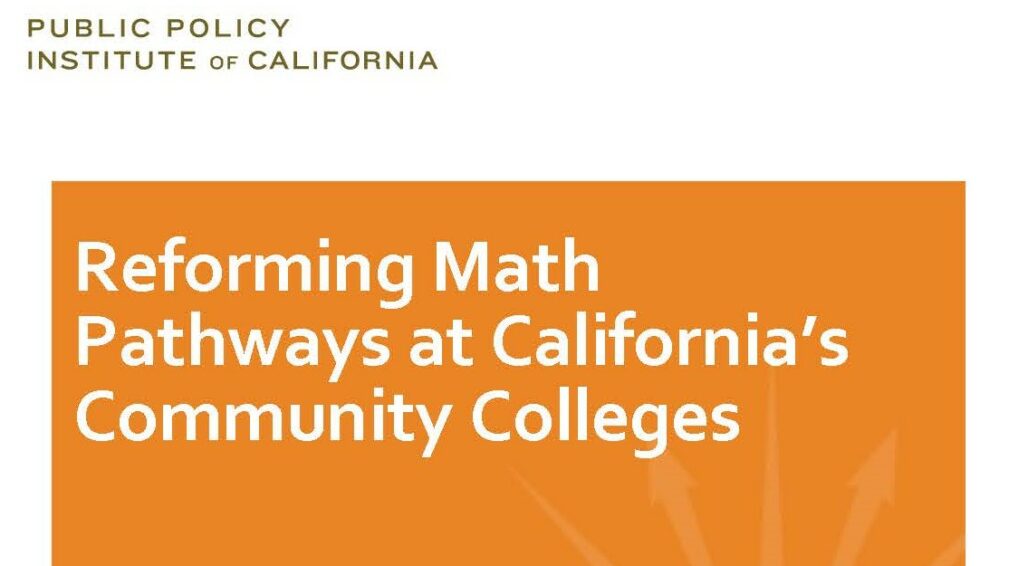Publications & Research
Reforming Math Pathways at California’s Community Colleges (2017)

For too many students in California’s community colleges, placement into remedial math—also known as developmental math—is a significant barrier to completing a bachelor’s degree in terms of both time and cost. For several years, practitioners and researchers have explored and piloted new ideas for developmental math instruction to help students become transfer-ready in a shorter amount of time.
This report from the Public Policy Institute of California (PPIC) looks at two of the most common reforms in California’s community college system: statistics pathways and compressed math pathways. Statistics pathways offer non-algebra sequences for students pursuing humanities and liberal arts degrees that do not require advanced math courses. Compressed math pathways encourage students to enroll in developmental math courses concurrently. These intensive math sequences reduce the number of semesters students spend preparing for transfer-level math.
Both reforms have led to more students completing transfer-level math than would in a traditional developmental math pathway. Yet clear differences and insights emerge in PPIC’s analysis. Two of the key findings include:
- Statistics pathways significantly improve student outcomes—students are almost three times as likely to complete a transfer-level math course than those in traditional sequences.
- The lowest levels of developmental math courses, in both traditional and compressed pathways, have very low rates of success. Institutions should consider eliminating these courses and enrolling students in higher-level math with additional academic and non-academic supports.
Read the full report for more details about these alternative pathways and for recommendations on how community colleges can continue to improve developmental math education in California.
Download Reforming Math Pathways at California’s Community Colleges
